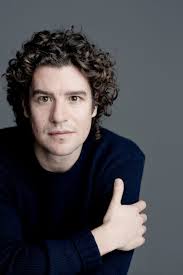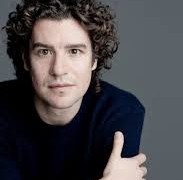Maestro move: Berlin keeps British baton
mainRobin Ticciati signed on today for another five years as music director of the Deutsches Symphonie-Orchester Berlin, taking him up to 2027.
Ticciati, 37, has been with the orchesra since 2017.
He says: ‘No-one can hide the fact that the next years for classical music will be very difficult to navigate: we will have to fight our corner with ever stronger passion. Symphonic orchestras must continue to question their own identity, inner creativity and ways of touching as many people as possible. It is the wonderful, logical step now for me to renew my special ties to this maverick band, the DSO, in Berlin. They want to risk and be pushed. Their thirst to evolve, to progress the model of what a radio orchestra actually can be, for Germany and the wider world, is a beautiful thing to be part of – I look forward to the years ahead. There is a lot more to achieve for everyone involved.’

Maverick? Lost in official translation?






Terrible decision for the orchestra….
Unfortunately I have to agree.
Why do you say that?
Thank you, Boris.
If – indeed – the next five years will be “very difficult”, travel restrictions are here to stay for some time and, as Rattle says, the emphasis should be on local travel, it seems to me that the emphasis should be on increasing the commitment of MDs. Instead of having MDs who have three orchestras where they spend 14 weeks each, with a summer festival tucked in and an opera somewhere else, cut them down to more manageable and realistic schedules. That counts double for the ones who have a North American and a European orchestra, triple for those with an Asian/Oceanian orchestra and a North American/European one.
Paradoxically, one viable model might be the YNS one: (too) heavy workload, but concentrated in three institutions close to each other, and with minimal guest conducting elsewhere. Another model might be that of residences: a conductor spends the bulk of their time with one institution, then spends a term elsewhere as principal guest (or on a geographically coherent tour). At any rate, the fly-in/fly-out MD has a ton of risk factors that could be avoided, and important consequences health-wise, organisation-wise, cost-wise, and environment-wise.
All that to say, I hope this is a genuine commitment by Ticciati, and that he will indeed concentrate his activities in Berlin and Glyndebourne.
I hope this is a genuine commitment by Ticciati, and that he will indeed concentrate his activities in Berlin and Glyndebourne.
No reason to doubt that, I’d say. One of the more interesting of today’s conductors.